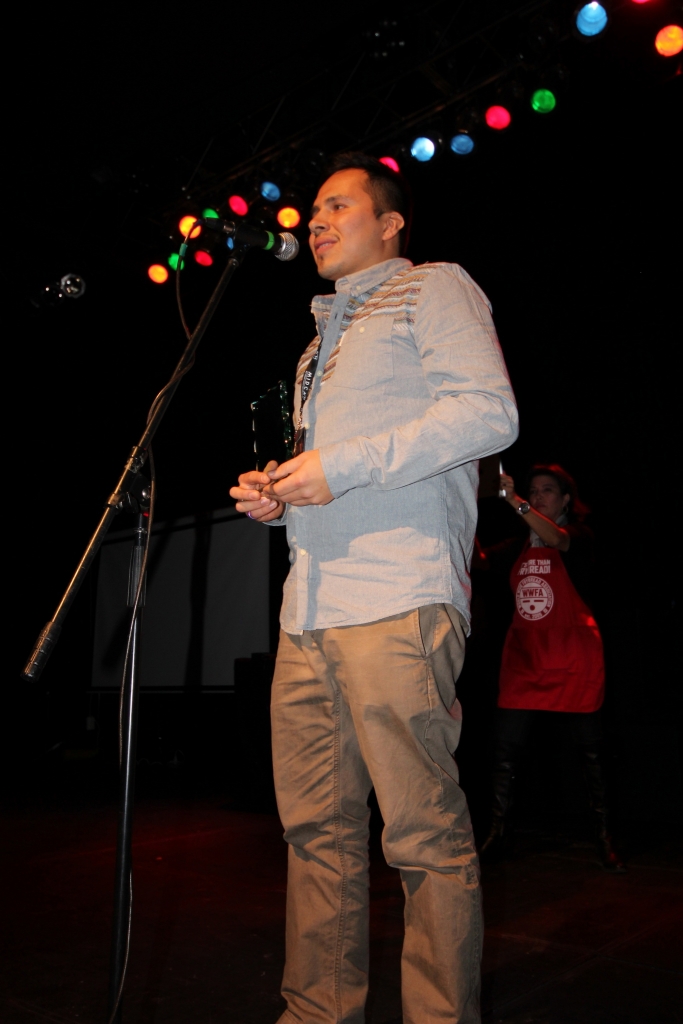Wayne Neegan of Constance Lake did not set out to make a documentary when he first interviewed George Stephen of Kashechewan.
At first the interview was intended for a project Neegan was working on out of Laurentian University. But it did not take long for him to realize that the amazing story Stephen was telling about his life had the potential to be a powerful film.
The documentary that emerged from Stephen’s story – Will to Live: George Stephen On and Off the Street – was recently awarded the Best Short Documentary award at Winnipeg’s Aboriginal Film Festival.
“I put a lot of time into this film, so it was good to know that it spoke to a lot of people,” Neegan said about winning the award. “In a way I couldn’t believe it. When I was looking at the other documentaries, I was thinking, ‘Well at least I got nominated.’”
The 28-minute film explores the reality of being homeless through the eyes of a man who says he has been homeless since he was born. In the film, Stephen talks about growing up as one of 13 children in a two-bedroom house, and being lucky if he got the couch to sleep on rather than a spot on the floor. He then traces his life through a series a tragedies, including residential school, the breakup of his marriage and losing his daughter to cancer when she was seven years old. Eventually Stephen gave up, and embarked on a 20-year journey of being homeless on the streets of Sudbury and other cities across North America.
The film does come to a positive place – two years ago Stephen decided he had enough of living on the streets. He began a process of healing that eventually led him to where he is today.
Neegan said he struggled trying to fit the enormity of a life such as Stephen’s into a short documentary.
“His homelessness really started on the reserve,” Neegan said. “There’s this idea that it all starts with, that Canada separated Native people from the rest of Canada by putting us on reserves. Then even within communities, people get separated by other forces, such as religion. And even within families people get separated from each other. So to try and lay it out in that context gave us the basis for the film.”
Neegan added that winning the award and getting recognition for the film made him realize how powerful it is to give justice to stories such as Stephen’s.
“To tell the story in this way and have other people respond in this way, it felt good,” he said.
Perhaps the best response he received was from Stephen the first time they showed the film.
“He shook my hand, and said good job,” Neegan said with a laugh. “I think it was almost therapeutic for him to tell his story, so it felt good to go through it and then to see it go further than our interview.”
Neegan is currently working on collecting stories for a Laurentian University documentary project based in the James Bay Cree communities. But he said the experience of making this film and then being honoured for it has opened his eyes to the potential of filmmaking.
Meanwhile he has already had a number of offers from film schools, and requests from other individuals and groups to tell their stories through film too.
Gold has arrived.










Gold has arrived. Here in the north of Ontario we see vast streams of gold shimmering across the landscape as autumn is here and the the leaves are turning...
I am the product, evolution of many thousands of years as are you. I grew up on the land in the remote far north of Ontario following in the footsteps of my...